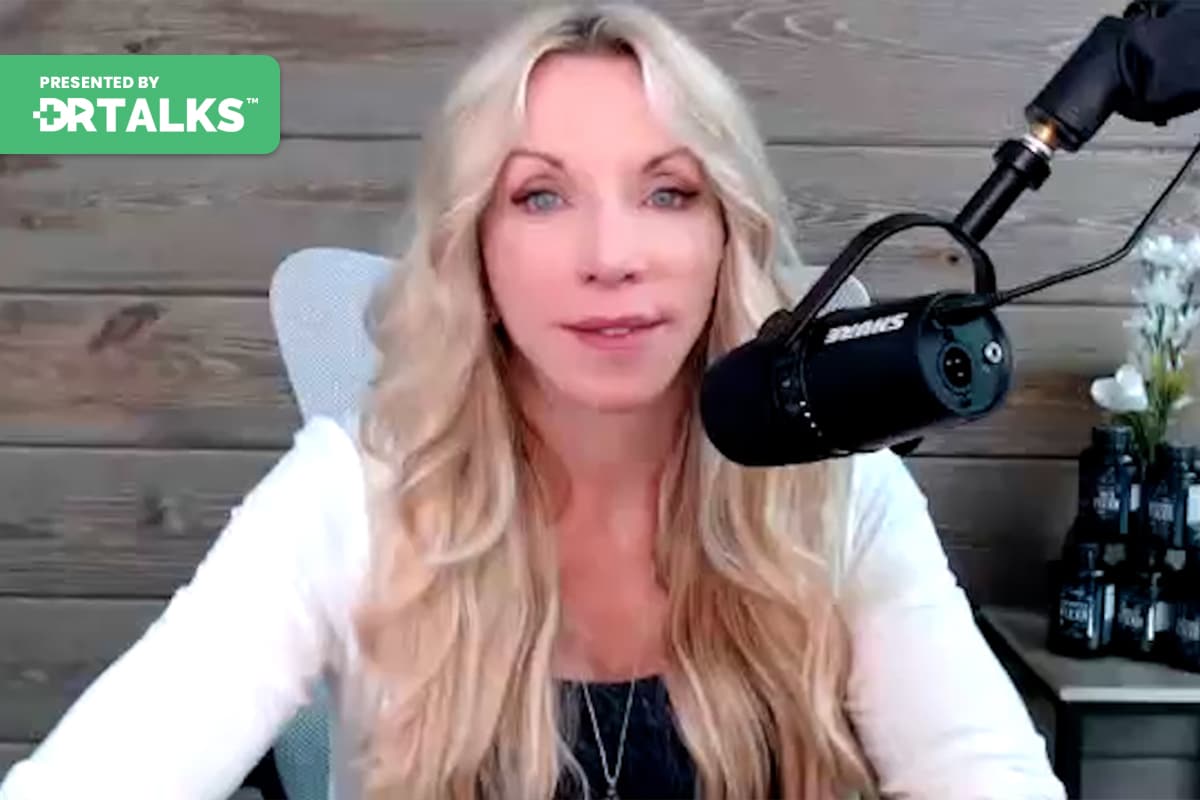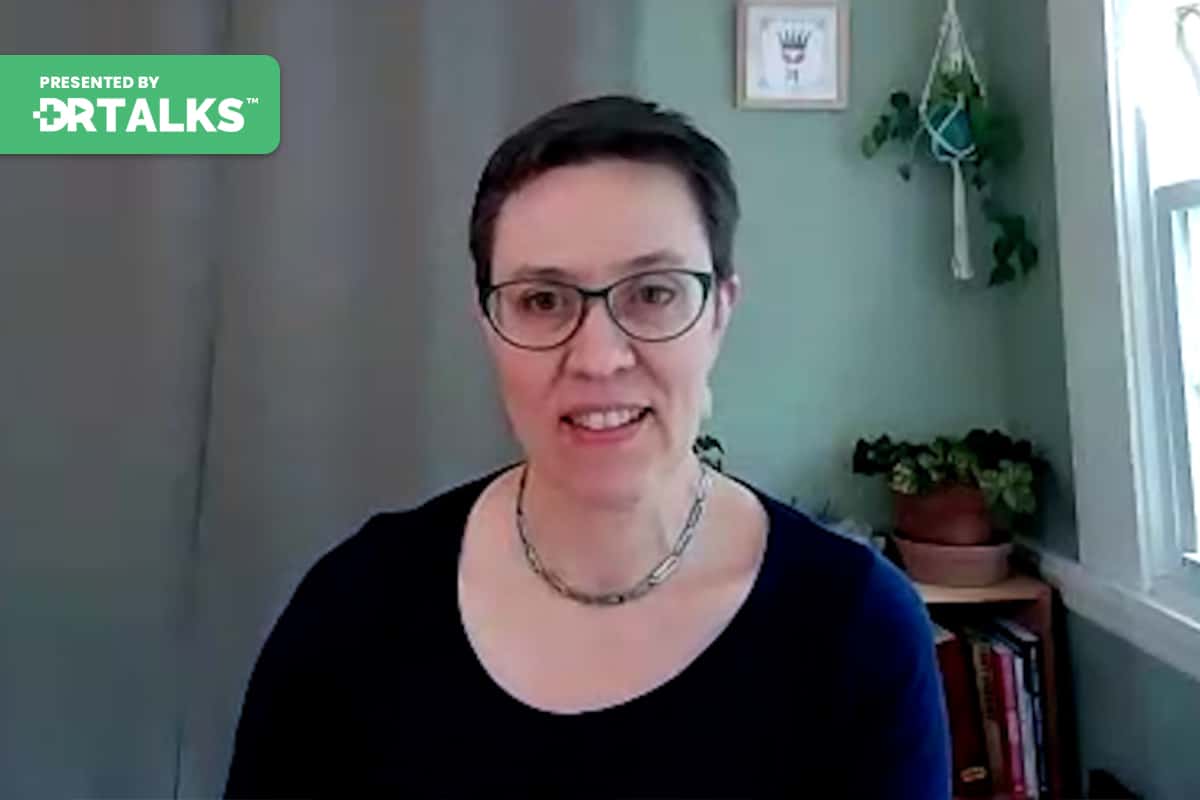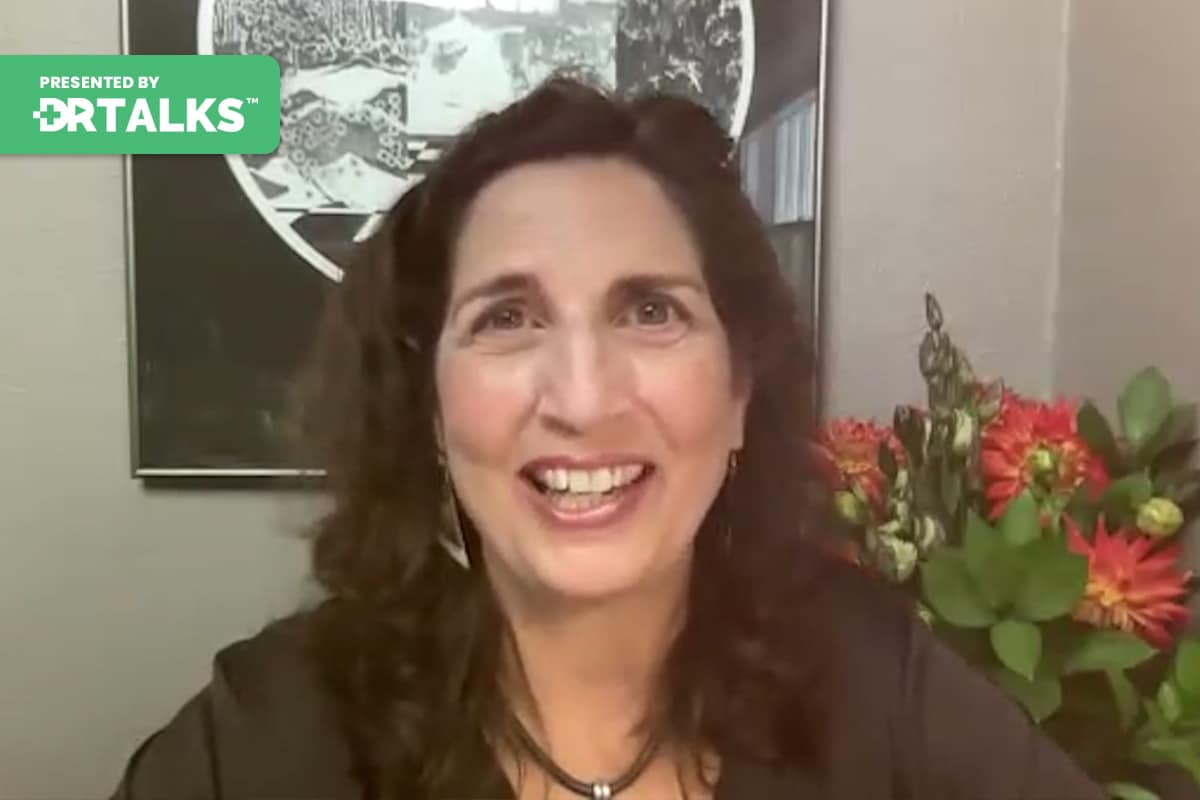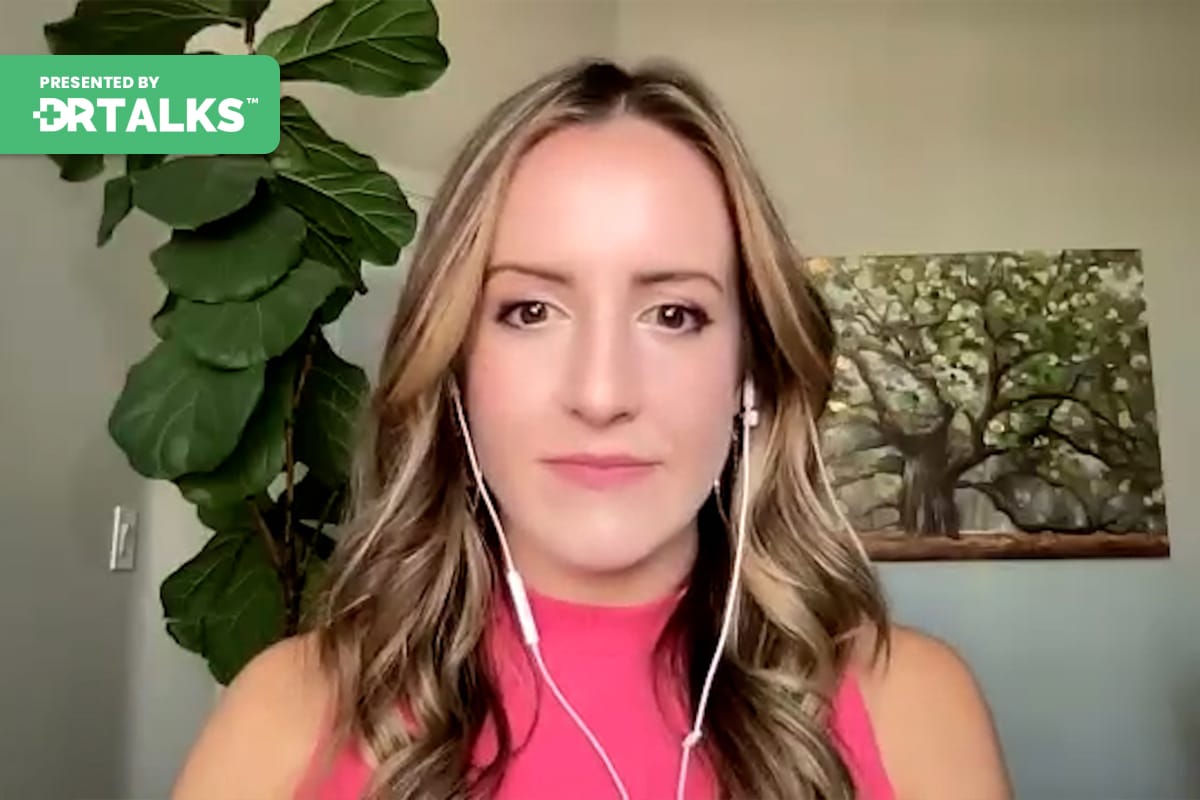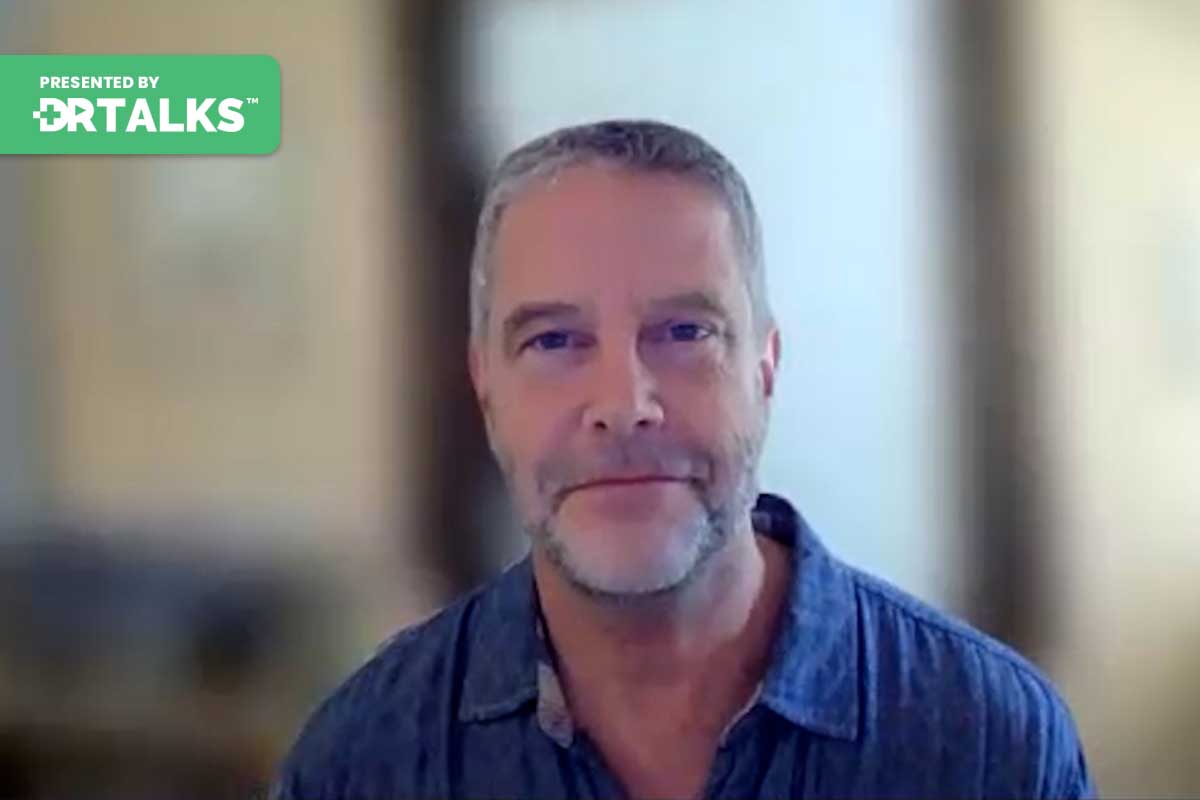Join the discussion below

Dr. Diane Mueller is the founder of My Libido Doc, an online community dedicated to helping women reclaim their desire. My Libido Doc provides education, community and health care services for women. Alongside her double doctorate in Naturopathic Medicine and Acupuncture, Dr. Diane extensively researches libido, pleasure and women's health... Read More

Dr. Amie Hornaman, a.k.a The Thyroid-Fixer, is a woman on a mission to optimize thyroid patients around the world and give them their lives back using her proprietary transformational program: The FIX Method. She is also the founder of the Institute for Thyroid and Hormone Optimization. After her own experience... Read More
- Uncover how low thyroid function can impact libido
- Grasp the mutual relationship between testosterone and the thyroid
- Learn about the essential optimal ranges for testosterone and the interventions available
- This video is part of the Solving Sexual Dysfunction Summit
Diane Mueller, ND, DAOM, LAc
Hey, everybody, welcome back to another episode of our Sexual Health Summit. I am your host libido expert, Dr. Diane Mueller. I’m so excited about the next person we’re interviewing here, Dr. Amie Hornaman, who is a thyroid expert and a testosterone expert. We’re going to talk about the links to these, libido, and more. Welcome to the interview, Dr. Hornaman. Thank you for spending time with me today.
Dr. Amie Hornaman
Oh, hi, Diane. Thank you so much. I’m excited. This is going to be an absolute killer summit. There is so much information people need.
Diane Mueller, ND, DAOM, LAc
Yes, it’s true. It’s a taboo topic. That’s not talked about as much as we need to. We’re, you know, getting deep into these topics, pun intended. Let’s start right away with you telling me and telling us a little bit about thyroid, about how you got into working with thyroid and helping people with thyroid issues. I know you’ve had your journey, so you want to just launch us into why this topic is passionate for you, and then we’ll link that to sex hormones, libido, and more.
Dr. Amie Hornaman
We have to remember that the thyroid is the master gland. that’s controlling every aspect of your body, including your sex hormones. It’s controlling our metabolism, our drive, our brains, our motivation, our sexual energy, and our desire. We always link that back to hormones and sjöström, which we’re going to talk about today, but we have to start with the thyroid because that’s the master gland. If that’s not working your entire body doesn’t work. This is where we’re getting the symptoms of weight gain. You can’t lose weight. You have no motivation. You feel like you’re losing your brainpower and memory. I’ve had some patients say I’m getting early Alzheimer’s, hair loss, constipation, and on and on. When your thyroid is low, everything in your body slows down, and when it is hypo, everything in your body slows down.
Now I figured out that I had a thyroid problem as well. I was going through a pain-to-purpose story. I’ll be brief. I was competing at the time. I was doing fitness modeling. I was competing. I was following a very strict diet and exercise protocol, and I was taking care of myself. This is back in my twenties. Let’s rewind many, many years ago, and the scale that should have been going down just biologically speaking—you know, fewer calories and more energy output at the gym scale should go down. You should lose body fat. The scale was going up and up and up and 25+ pounds up where it just didn’t biologically make sense. I did what we all do. I went to my doctor, and in fact, I went to six different doctors who all told me everything was fine. You’re normal; eat less and exercise more. It’s all in your head. I got every answer and any excuse under the sun except what was wrong with me and why my body was rebelling against me.
The weight was weighing heavily on me, but I had no desire to work. I had lost my libido in my twenties. I had lost my hair. I was fatigued all day long. That’s not how life is supposed to be lived at any age. It doesn’t matter whether you’re in your twenties, fifties, or sixties; you shouldn’t be walking around like a zombie, depressed and miserable, fat and tired, etc. The seventh doctor finally diagnosed me, and that was a functional medicine doctor. Saved my life, did all the right tests, did all the right treatment, and did not give me the cookie-cutter standard protocol: conventional medicine treatment. We went outside the box—slightly outside the box. But using things like bioidentical hormones, using things like thyroid hormone replacement therapy, and using the right supplements for support—that’s what turned my life around. That’s what catapulted me into helping others, because the frustration I went through was so great. I knew there were others, mostly women, who felt the same way I did. That is why I’m here doing what I do now.
Diane Mueller, ND, DAOM, LAc
I like the orientation to the pain—to purpose, you know—thing. A lot of us get into this profession because of that. Let’s start linking people to why since this is a Sexual Health Summit. That story probably resonated with a lot of people at scale moving when you’re doing everything right and it turns out to be the thyroid. We see this huge link. Because a lot of people think about thyroid and weight, like you mentioned, or they think about constipation, hair loss, or some of these other types of things. But there is a huge link, as we know, between thyroid, sex, and sexual health. Can you start for us to link that symptom of low libido, the low sex drive, with thyroid abnormalities?
Dr. Amie Hornaman
When we start with the thyroid control link, let’s talk about the different things controlling blood flow and heart rate. One thing that we’ll see in hypothyroid patients is a very low heart rate. I joke; I say you’re not Lance Armstrong walking around with a heart rate of 55. You’re hypo; you’re hypo low and slow. Whereas a normal resting heart rate for, we’ll say, moderately active individuals in the general population, non-marathon athletes, would be around, you know, 70, 65, 75, or something like that. people that are walking around with a low heart rate of 50, or 55, their circulation is down. Now that’s going to affect sexual performance. As we know, increasing circulation occurs through a variety of mechanisms. This is what Viagra does.
We are increasing that circulation to the penis. Increasing circulation is going to help. Decreasing circulation is going to hurt. With hypothyroidism and males, we do see an earlier onset of erectile dysfunction, with females not getting that circulation and not getting that blood flow to their genitals. That is going to decrease sensation. That’s going to decrease libido because you don’t even feel anything down there. What I hear from my ladies is, “Oh, I’m getting that tingle back right when we start optimizing that,” because they actually start to feel that blood flow in that circulation increases the heart rate and increases body temperature in a good way, and then we can move into the effect on the sex hormones themselves. With the thyroid being the master gland up top, what I often see with hypothyroidism—low and slow thyroid function—is a downregulation of the sex hormones. This is where we’ll see early-onset menopause with ladies going into perimenopause, and menopause is in their thirties, or late thirties, very early forties.
That’s not even connected to a genetic predisposition like mom went into early menopause, but I know it’s connected to the fact that your thyroid is so low and slow and not functioning that the signals to the sex hormones from the pituitary, from the hypothalamus into the testes, the gonads, the ovaries, your adrenal glands—all of that. It’s like the communication pathway. It has blips in it. It’s slow. It’s like thinking about being back in the days of dial-up. You dial up your computer, you go, you start it, and you go grab a cup of coffee. It’s ringing. You come back, you click another button, and you go. That is the whole connection when the thyroid is low in the sex hormone balance.
As we move into talking about testosterone, there is an effect on testosterone levels in males and females. There is a correlation. There is an effect of dropping that test level because of low thyroid function. the third component is worth mentioning, and I talk about this when I talk about low libido because I hear low libido as a symptom so often from mainly maladies. Well, here’s the thing. We are very mental creatures, and for us to, let’s just be honest, get naked and feel confident in our skin, we need to be the weight. I’m not saying weight is everything, but we need to be the weight that we are comfortable with. when your body is rebelling against you like mine was, and I was carrying an extra 25 pounds, that it wasn’t me, that wasn’t who I was.
I wasn’t used to carrying that much extra weight. It came on very quickly. The depression that goes along with that, the lack of confidence, and the drop in confidence that goes along with that start to weigh heavily on the mind. I don’t care who you are, male or female; it’s going to weigh heavily on you if you don’t even want to get naked and pass by the mirror and see yourself. How are you going to want to get naked? Be with another person, be with your partner, or be with someone else. You just feel all closed in. That’s a huge component of libido. I know that you got into the mental aspects of sexual health because when we are depressed, when we are low, when we are frustrated when we are searching for answers and not getting help, when our body is rebelling against us, that’s going to put us in a mental state that there is no way that we’re thinking about sex and the body just from a biological standpoint, when the body is also in that, we’ll say, reactionary, inflamed state. Because if you have hypothyroidism, if it’s autoimmune, if it’s starting to affect your hormones, it is starting to affect your insulin levels. That’s going to be an inflammatory state. When the body is in that state, our bodies are so smart that they start to shut down what we don’t need. What don’t we need when we need to heal? Think about lying on the hospital bed.
You were injured; you broke your knee. You broke your arm. You need shoulders or whatever. You were in a car or bike accident. You’re lying; are you thinking about sex? No. Your body knows that you’re not focused on work. You’re not thinking about sex. You’re not, you know; even the body goes, what? They don’t even need to grow their hair right now. You can shut down hair-growing processes. Let’s shut down circulation to the genitals. We need the blood to go where it needs to go to heal. all of that, when you think about just those three to four aspects of the thyroid. My God, yes, you better bet your butt that it’s going to affect your sex life, your desire, your drive, and your ability to perform 100%.
Diane Mueller, ND, DAOM, LAc
There are so many things you said there that are worth commenting on. The thread that I want to tie everybody back to is, you know, you mentioned circulation and body image and depression and mental health and all these different components. You’re right, there are on the summit; we are going into some of those things deeper. But one of the things that I want to emphasize, and what you said is so brilliant, is functional medicine practitioner. We’re always coming back to the roots. When we’re talking about the root causes of all these things. It’s like we have libido as the symptom and low libido as a symptom, and that could be caused by low circulation, mental health abnormalities, body shame, and all these different components. Sometimes the root of all those things, like a further step-down, is the thyroid. This is an intricate play that we’re linking. All of these other different components come through the thyroid. I appreciate how well you put that together for everybody. We should go next into a very common thing that I know you get asked all the time in your clinic, as I do, which is why I had my TSH run, and most of our listeners know what that is. But just to clarify, it is a brain hormone. I’ll let you explain that a little bit more. But the question we get asked a lot is: When my TSH was run, my doctor said it was normal, so it’s not my thyroid. Can you talk to us more about that?
Dr. Amie Hornaman
Yes, 100%. TSH is a thyroid-stimulating hormone. As Diana said, it is a brain hormone and not a thyroid hormone produced by your thyroid gland at all. It’s a great one-moment-in-time snapshot if it’s super high; if it’s screaming at us, then that tells us, “Hey, this person has hypothyroidism,” or low thyroid function. But if it’s not, it can be functional medicine with an optimal range of less than two. That still does not mean there is a double negative here. It doesn’t mean that you don’t have a thyroid problem. You could still have a thyroid problem. That’s why we want to test further. We want to look at what your free T3 and free T4 are.
T4 is inactive. This is a thyroid hormone. T3 is the active thyroid hormone. We want to test both thyroid hormones to see how your thyroid is producing those important hormones that it needs to produce. Let’s see if it’s doing its job. Then we move on to reverse T3, which is the anti-thyroid hormone. I use the analogy of a bouncer. It’s a bouncer at the club. It’s a bouncer outside your cell door. 23 that active thyroid hormone that’s going to come in and give you a good metabolite exam and let you poop every day and light your brain on fire and improve your circulation and improve your sex hormones. It can’t get in. Now we don’t have the active thyroid hormone not even able to do its job.
Reverse T3 is a very important marker. Then we want to test to see if you have an autoimmune disease. We test TPO and TG antibodies, and that tells us, do you have an autoimmune component here where your body thinks your thyroid gland is a bad guy and is attacking it? Or is this just hypothyroidism or thyroid gland crap? Maybe it was from overexercising, over-dieting, the medication that you’re on, radiation, chemotherapy, or something like that. We need to find out what’s causing the thyroid problem, but then we have to tailor that treatment to fit exactly what we see in those labs, paired up with your symptoms.
Diane Mueller, ND, DAOM, LAc
That’s beautiful. For everybody listening, the big thing is also to understand that what Dr. Amie is talking about here is just because these things are in your blood. If you have free T3 in your blood, that doesn’t mean it’s getting inside the cell. It doesn’t mean it’s doing its job. That’s where that bouncer analogy comes in. So the big takeaway message is: don’t just look at these basic levels and think you’re fine. In functional medicine, that means those things happen a huge percentage of the time. I would argue that most of the time, doing those very basic tasks, we miss things. then you think your thyroid is not the cause. You think that you know that’s not the cause of the low blood pressure, the libido, and all the other things we’re talking about. You can miss the elephant in the room, so to speak. That’s how we know a thyroid is low. That covers the lab testing. Now, I want to go. You mentioned a little bit in that whole overarching thyroid-libido connection of everything. Because there is so much data on testosterone being a sex hormone that supports libido, it’s not the only one, of course, but it is a predominant support as a sex hormone for supporting libido. There is that link that you hinted at earlier between libido, thyroid, and testosterone. Can you tie that together for us a little bit more and go a little bit deeper into testosterone and how that is interrelated with the thyroid?
Dr. Amie Hornaman
We talked about the thyroid being the master and having control over all the sex hormones with testosterone. It is produced in the testes, the ovaries, and the adrenal glands. Because the thyroid affects the adrenal glands and every organ system, every gland, and every organ system in the body, we naturally see a downstream shutdown of adequate production. I wouldn’t even call for a shutdown of production. It’s just a shutdown of adequate production. We’ll rarely have, let’s say, a male come in and have zero testosterone. No, he’ll still be in that huge standard lab value range and still be called normal by conventional medicine. Then, in functional medicine, we’ll look and we’ll say, “Oh, my gosh, you are low.”
When we’re looking at testosterone and we’ll break this down by the sexes, let’s start with the guys because I mentioned that when we’re looking at testosterone levels and we look at that standard lab value range, it goes from like to most labs. It’s like 225, 250, and we’ll go up to 900, 2000, 1100, maybe even 1200, if you’re lucky, optimal. In my world, at 800 or above, I don’t even let my 75-year-old father walk around with the testosterone of a 400. But his doctor would tell him he’s normal. Testosterone is the get-stuff-done hormone. It’s what gives us the motivation to have sex. Go to the gym, do a fantastic workout, come home and work for eight hours, and run in your business. For the ladies, getting the kids to school, running your own business, you know, getting stuff done, taking care of yourself, and getting to the gym is very important for all things, including sexual function. Also, Joe goes up to 45. Ladies, you are getting cut off on the standard lab value range even before you hit the bottom of the barrel, which is optimal in my world.
I like my women. 50 total testosterone, 50 or above. If you’re getting cut off at 45, guess what happens if you come in optimal? Let’s say you come in with a total testosterone level of 65. Good for you. You’re going to get flagged high, and your doctor is going to tell you that you have too high a level of testosterone. To even look at testosterone through the conventional lens, no, you can’t do it. You will get the shaft every single time. Don’t even bother. You have to look at testosterone levels through the functional lens, and that’s where we start to see that decline. I’ll have men, male patients in their late thirties or early forties, and I’ll even mention a male patient; there were 22 with erectile dysfunction who couldn’t perform at all.
Well, sure enough, he had a thyroid problem. He had Hashimoto’s and very low testosterone. His testosterone levels were, I want to say, maybe 300 again, enough that conventional medicine called him normal. A poor 22-year-old walks around with a testosterone level of 300, and he can’t get an erection. Do you think that’s normal? That is not normal. He started fixing his thyroid. We use very basic supplementation for his testosterone levels. Now they’re up to 7,800, and he’s feeling great. That’s the perfect example of how treating the thyroid helps improve testosterone levels. Now, for people a little bit older, your testosterone levels are naturally going to decline after the age of 40.
They are just men. You’re starting even again after the age of 30. Sometimes testosterone replacement is required for that when we talk about treatment, and we get into that. But you can see how there are a multitude of different ways to address this. Sometimes we start with the thyroid, addressing that, and then all of a sudden we’ll see these testosterone levels just come into that optimal range beautifully. then sometimes we have to do both, where we address that low thyroid function that we’re seeing, and then we come down here we go. Okay, we need to do something with this test level, male or female, whatever you are. Sometimes it’s testosterone replacement therapy; sometimes it’s supplementation to support and kickstart your natural production. Sometimes it’s about addressing stress and the adrenals because that will tank the thyroid and testosterone levels. Like you said, Diane’s about finding the root cause and dialing in the protocol that’s going to address what we see.
Diane Mueller, ND, DAOM, LAc
Yes, that’s so true. Another thing that is going to come to your attention is that, because I work with people similarly, a lot of us in functional medicine have similar reference rates and reference ranges. It’s like symptoms go away typically, and people feel their backs when we’re at those high levels. One of the scariest things that people have, especially men, is prostate hyperplasia. What happens to my prostate? oftentimes if they take this information, if they have a normal testosterone level, and I say normal in air quotes, for those of you that are not watching this via video. Because, of course, our normal is, like you said, much higher. But let’s say they have a conventional normal range in this three-400 type of zone you’re talking about. They get put on testosterone replacement therapy oftentimes. Taking that to a conventional doctor, sometimes there can be a lot of fear that gets put into people around, like, “Oh, you should be on testosterone; you’re going to get hyperplasia. That’s going to cause prostate problems.” I want to make sure we cover that. Can you talk a little bit about that for us?
Dr. Amie Hornaman
I see this every day in conventional medicine. It happened to my husband, too. Throughout the years, very similar to what we can talk about with the Women’s Health Initiative study, that put the fear of God in women for hormones, and “Oh, my gosh, hormones are going to cause cancer.” We see the same thing with men, testosterone, and prostate health. There is so much misinformation out there that you need to be working with someone who has educated themselves in the last five to ten years. There is a lot of information out there that clears that path: that there is a very low relationship between testosterone replacement therapy and any prostate hyperplasia. The TSA is going up. It can have a small effect, but even if that TSA starts to float up a little bit and we know the man is on TRT, we just watch it. We don’t worry about it too much. We just watched it. In conventional medicine, though, they would see that TSA is flagged high with a little age next to it. It’s all red. Then they freak out, and they pull. Whatever they have been taught is the cost, and they pull the testosterone. Okay. What happens? Well, now, as a man with low testosterone outside of sexual function, you’re at a greater risk of cardiovascular disease. Now you’re at greater risk of depression, type 2 diabetes, obesity, visceral fat, loss of muscle, sarcopenia—the list goes on and on. It’s like, “Well, do you want to roll the dice with a little prostate hyperplasia that may or may not be true?” The literature may show that one study out of every five says, Well, yes, maybe testosterone causes that. then the other four studies say, No, it doesn’t. There is no correlation whatsoever.
Would you rather roll those dice, or do you want to roll the dice of heart disease, obesity, type 2 diabetes, cardiovascular disease, and on and on and on and on? I’m going to risk prostate hyperplasia as a man; the same is true for women. I’m going to risk maybe some, let’s say, androgenic symptoms. We will start giving you testosterone. You get a little pimple here and there, and you get a little dark hair here and there. But your libido is back. You had the best relationship with your partner. Did you ever have any in your life? You feel like a rock star. You’re going to the gym; you don’t look like a bodybuilder, and then you’re getting a little bit tighter. You can start to see your definition. You’re losing some body fat. You just went up five pounds in your weights. Yes, I’ll take that, too. It’s about hormones that are anti-aging. When we bring in hormones, they age us in reverse. We’re replacing those hormones that were once there when we were young. For men or women getting scared by their conventional doctor, I would say, look at a 15- or 16-year-old. Does a 15- or 16-year-old have breast cancer? They have more hormones than we do. Does a 15- or 16-year-old have prostate hyperplasia? They have more testosterone than you will ever see in your life. The answer is now. Testosterone and all the hormones give us life and give us youth.
Diane Mueller, ND, DAOM, LAc
Thank you for that. The thing I want to add to what you said is that it’s so important. I appreciate you bringing up the Women’s Health Initiative because that’s a situation; it’s a study. There are studies that we can basically talk all day about and pick apart and dissect because of all the misinformation that came out of them. A lot of these other studies you’re mentioning with testosterone are correlative-type studies. A lot of these studies are not causal. If it’s not, you give testosterone, and all of a sudden every single variable is controlled so that we know what X causes Y. It’s a correlation. That’s just another way to make sure people are understanding. I appreciate you, you know. With the risk analysis that you’re giving, which one is a better risk? In the end, it’s also a combination of getting your thyroid right like you do in your practice and getting all these other variables right, which will also lower the risk of those, potential, any risk that could be coming from that if some of the correlations do have some level of, you know, accuracy to them. That’s an important thing to bring up as well. We are getting low on time. I want to make sure we end with how people get a hold of you, and we’ll talk about that.
But besides that, before we go there, just talk to us a little bit more about maybe some actionable steps. We have the actionable steps that people are taking to get out of this. I know you guys. I know we gave you so much information. You’re probably going to want to go back and listen to this again and again. Remember, you can do that. You can sign up to buy these and get them again and again, so you can write down all those lab values. That’s important for you guys to make sure that you are taking this to your doctors or you’re going to see Dr. Amie and saying, “Hey, these lab results you get in the reference ranges are not accurate that have been explained to you,” so let’s say actionable step number one is getting all the lab tests done, the right lab tests using the reference range. As you described, you mentioned testing for natural replacement. What are some other actionable steps that you would offer to people as a way of starting to work on their thyroid and their sex hormones with that since this is sexual health work on their sexual health as well?
Dr. Amie Hornaman
Just like you said, get all the testing because that’s you being your patient advocate and you having that knowledge in your hands to see exactly where you fall in that optimal range. We mentioned some numbers here. Go back and listen. But there will also be a part of the gift that we’re going to give you. If you didn’t catch anything, it will be in there. Number two would be to lift heavy stuff. Because when you go, there are studies, and these are good studies. These are the bias studies. Several studies show that going to the gym and lifting heavy, picking up a weight that maybe you fail at when you hit that 10 to 12 rep mark—we’re not talking about Jane Fonda workouts where you’re throwing around these two-pound weights ever were resistance training—lifting heavy to the point of failure at an eight to 12-rep range stimulates the body to produce more testosterone and produce more growth hormone. When you leave the gym after a heavy weightlifting session, that means you’re not spending an hour on the peloton, the elliptical, or the treadmill.
You’re lifting heavy loads that will stimulate your natural production. Whether you’re male or female, you’re going to get that boost in testosterone, and in the boosting growth hormone, the anti-aging hormone actually helps with inflammation, blood flow, and just anti-aging, our skin, our longevity, our fat loss, and our muscle gain—lifting heavy objects is something so simple that people can do. That is number one. Number two, well, that’s number two. In addition to the testing, number three is deep sleep. We overlook it. I’m guilty of this as well. I’ve spent years making excuses, especially as an entrepreneur, for why I can’t get good sleep or why I can’t go to bed at 10 p.m. Why do I need to stay up and finish this project? But the bottom line is that everything suffers when we don’t sleep. Lack of sleep and our best rest and restore sleep time are between 10 p.m. and 2 a.m. When we do not get that deep, restful sleep, we’re at an increased risk of obesity. We are increasing our inflammation—our whole systemic, full-body inflammation.
What that is going to do is shut down our thyroid production bar, which is not going to work as well. We’re walking around in this inflammatory state. We haven’t rested or repaired anything. No cellular repair, no mitochondria repair. We are starting to gain weight. You become more hungry when you don’t sleep. Your brain’s not going to function if it’s not functioning. Are you going to want sex? No. Testosterone is going to start declining. Growth hormone is going to start declining. Insulin will increase because that insulin is in response to almost moving into a type 2 diabetic state, which we have shown for a lack of sleep. It’s just detrimental. Just take our word for it. It’s detrimental not to sleep. Just doing that simple, simple behavioral change of improving your sleep, hygiene habits before bed, the blue light-blocking glasses, shutting off your phone, shutting off the computer, maybe reading a book—for goodness sake, let’s go back in time and pick up a book that is enough to reset your body, to decrease information, to help improve your everything, your hormonal signaling.
All of these tie back to you sitting there thinking, Well, how is lifting heavy and sleeping going to improve my sexual life? It ties back to everything that Diane and I just talked about that the thyroid is the master gland, allowing it to work properly on its own. This is outside of treatment. This is outside of medication; this is outside of supplementation. This is free you can go and lift heavy stuff and get good sleep. Those two behavioral changes alone can have a huge impact on your body.
Diane Mueller, ND, DAOM, LAc
Yes, these are great things to leave everyone with because they are so actionable, and sometimes it’s so exciting to, like, get on the new HRT, get on the new supplement, or try these sorts of things. Sometimes just these basic things, like sleep, are so easy to overlook, and there is so much research and data, as we both know, showing the huge impact on so many areas of the body and mind of hormones, libido, and more. Thank you so much for your time today. I want to wrap up by letting everybody know where to get a hold of you. You guys. Dr. Amie’s information will be in her speaker bio on the summit web page. Then make sure you look at that for any information about her clinic. But is there any information you want to make sure we cover? I know you’re giving people away. You’re giving something away to everyone. I want to make sure we announce that. What do you want to leave everybody with?
Dr. Amie Hornaman
Yes, just dive into more information and learn about your health. I’m a huge advocate of being your advocate. So dive into my thyroid-fixing podcast that’s on all podcast platforms. We have about 350 episodes. Yes, we are going deep in the areas of testosterone and hormone replacement, bioidentical hormones, and thyroid. All things thyroid. We talk about libido, we talk about the way, we talk about all the things. Then, yes, the gift that we’re giving away is my Quickstart course. This is going to take you by the hand and lead you through all the testing that we just talked about today, including the optimal lab value ranges. It’s going to give you things that you can do. Maybe it’s a conversation with your doctor about what you have learned about the labs in your body. Or maybe it is supplementing, or maybe it is taking that next step and doing something like bioidentical hormone replacement therapy. It’s all in there. It’s a big gift, but it’s going to empower you, guide you, and help you improve this aspect of your life with thyroid hormones ten times.
Diane Mueller, ND, DAOM, LAc
Amazing. Thank you for that. It is so generous. I know it’s going to help everybody so much, and I appreciate your time and expertise today.
Dr. Amie Hornaman
Thank you.
Diane Mueller, ND, DAOM, LAc
Thank you, everybody. We’ll see you in another interview.
Downloads

